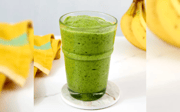Could taurine—the trendy amino acid in your energy drink—really slow down aging?
- Replies 0
That’s been the big buzz in longevity circles since a 2023 study claimed taurine levels drop with age and that topping them up could slow aging in animals.
But a new study just published in Science may be pouring cold water on that theory—at least for humans.
Researchers found that taurine levels don’t actually decline with age, contradicting earlier assumptions.
In some cases, they even increase later in life. This surprising twist is raising questions about taurine’s role as an anti-aging marker and supplement.
“We did this study to confirm what the first had done,” said Dr. Luigi Ferrucci, scientific director at the National Institute on Aging. “But we found a large discrepancy.”
Ferrucci’s team expected to see lower taurine levels in older adults—but they didn’t. Instead, taurine levels remained stable or even rose with age.

The result? Taurine may not be the reliable marker of biological aging it was once thought to be.
This doesn’t necessarily mean taurine supplements are useless.
The body makes small amounts of taurine, but most comes from food like shellfish, dark poultry, and red meat.
Some believe more taurine could support cellular health, reduce inflammation, or help with metabolic function—even if age alone doesn’t cause a deficiency.
Dr. Vijay Yadav, co-author of the earlier 2023 study, says differences in population genetics could explain the conflicting results.
The 2023 study drew from a homogenous Finnish group, while the new study focused on the more diverse population of Baltimore.
“It just means we need to better define the variables,” said Yadav. Things like genetics, fasting state, and diet could all affect taurine readings—just like with blood sugar tests.
Yadav’s team is already conducting a double-blind, randomized placebo-controlled trial to find out whether taurine supplements can improve health and delay aging in humans.
The two papers are a good example of how science can work, said Dr. Peter Abadir of Johns Hopkins University. “The message from both these papers is we need more studies.”
For now, taurine remains a mystery: potentially powerful, possibly overhyped, and definitely worth a closer look.
Read next:

Can taurine really help you live longer, or are we just buying into the hype? Before you reach for that supplement bottle, dive into the science and follow the latest research—because when it comes to aging, facts matter more than fads. Stay informed and keep questioning the trends!
But a new study just published in Science may be pouring cold water on that theory—at least for humans.
Researchers found that taurine levels don’t actually decline with age, contradicting earlier assumptions.
In some cases, they even increase later in life. This surprising twist is raising questions about taurine’s role as an anti-aging marker and supplement.
“We did this study to confirm what the first had done,” said Dr. Luigi Ferrucci, scientific director at the National Institute on Aging. “But we found a large discrepancy.”
Ferrucci’s team expected to see lower taurine levels in older adults—but they didn’t. Instead, taurine levels remained stable or even rose with age.

Researchers found that taurine levels don’t actually decline with age. Image source: Kenny Eliason / Unsplash
The result? Taurine may not be the reliable marker of biological aging it was once thought to be.
This doesn’t necessarily mean taurine supplements are useless.
The body makes small amounts of taurine, but most comes from food like shellfish, dark poultry, and red meat.
Some believe more taurine could support cellular health, reduce inflammation, or help with metabolic function—even if age alone doesn’t cause a deficiency.
Dr. Vijay Yadav, co-author of the earlier 2023 study, says differences in population genetics could explain the conflicting results.
The 2023 study drew from a homogenous Finnish group, while the new study focused on the more diverse population of Baltimore.
“It just means we need to better define the variables,” said Yadav. Things like genetics, fasting state, and diet could all affect taurine readings—just like with blood sugar tests.
Yadav’s team is already conducting a double-blind, randomized placebo-controlled trial to find out whether taurine supplements can improve health and delay aging in humans.
The two papers are a good example of how science can work, said Dr. Peter Abadir of Johns Hopkins University. “The message from both these papers is we need more studies.”
For now, taurine remains a mystery: potentially powerful, possibly overhyped, and definitely worth a closer look.
Read next:
- Is your favorite drink secretly damaging your organs? Shocking warning after mom's health scare
- Experts reveal how even a single daily drink could jeopardize your health–What you need to know
Key Takeaways
- A new 2025 study contradicts earlier research, finding that taurine levels don’t decline with age.
- Taurine is a nutrient found in shellfish and meat, popular among longevity enthusiasts.
- Conflicting data may be due to population genetics and sampling variables like fasting status.
- A large clinical trial is underway to determine taurine’s real impact on human aging.






